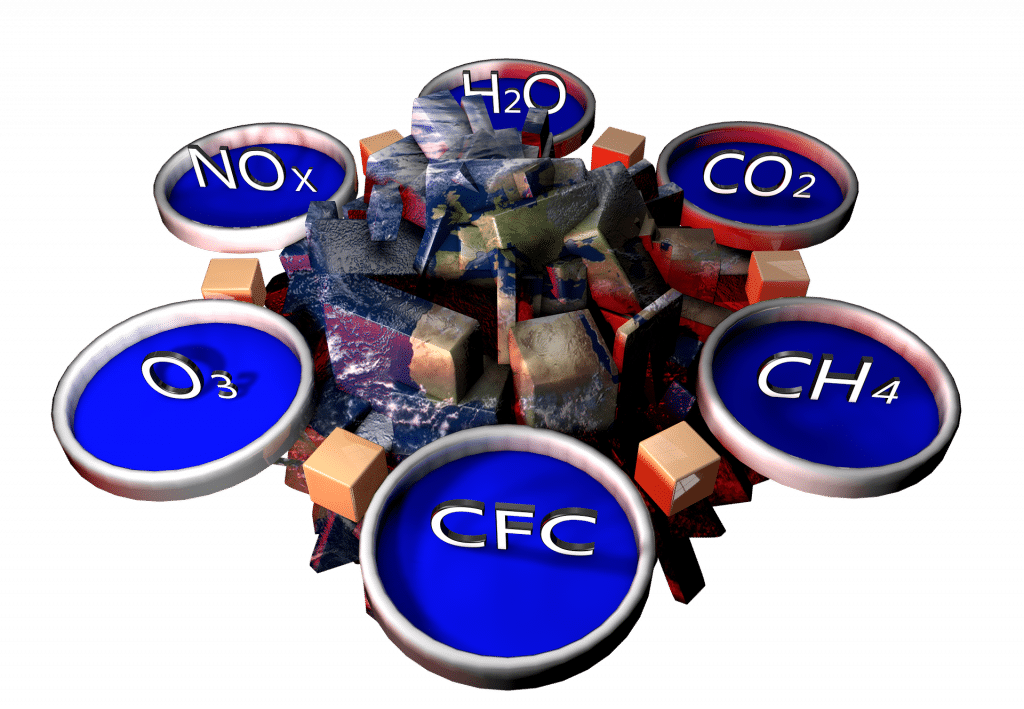Leaked UN draft report: Greenhouse emissions must peak in four years
By Fiona Harvey, Giles Tremlett | August 24, 2021
 Image courtesy Daniel Diaz/Pixabay
Image courtesy Daniel Diaz/Pixabay
Editor’s note: This story was originally published by The Guardian. It appears here as part of the Climate Desk collaboration.
Global greenhouse gas emissions must peak in the next four years, coal and gas-fired power plants must close in the next decade, and lifestyle and behavioral changes will be needed to avoid climate breakdown, according to leaked drafts of a report from the world’s leading authority on climate science.
Rich people in every country are overwhelmingly more responsible for global heating than the poor, with SUVs and meat-eating singled out for blame, and the high-carbon basis for future economic growth is also questioned.
The leak is from the forthcoming third part of the landmark report by the Intergovernmental Panel on Climate Change, the first part of which was published on August 9, warning of unprecedented changes to the climate, some of them irreversible. The document, called the sixth assessment report, is divided into three parts: the physical science of climate change; the impacts; and ways of reducing human influence on the climate.
Part three is not scheduled to be released before next March, but a small group of scientists decided to leak the draft via the Spanish branch of Scientist Rebellion, an offshoot of the Extinction Rebellion movement. It was first published by the journalist Juan Bordera in the Spanish online magazine CTXT.
Bordera told the Guardian that the leak reflected the concern of some of those involved in drawing up the document that their conclusions could be watered down before publication in 2022. Governments have the right to make changes to the “summary for policymakers.”
The top 10 percent of emitters globally, who are also the wealthiest 10 percent, contribute between 36 and 45 percent of emissions, which is 10 times as much as the poorest 10 percent, who are responsible for only about 3 to 5 percent, the report finds. “The consumption patterns of higher income consumers are associated with large carbon footprints. Top emitters dominate emissions in key sectors, for example the top 1 percent account for 50 percent of emissions from aviation,” the summary says.
The report underlines the lifestyle changes that will be necessary, particularly in rich countries and among the wealthy globally. Refraining from over-heating or over-cooling homes, walking and cycling, cutting air travel, and using energy-consuming appliances less can all contribute significantly to the reductions in emissions needed, the report finds.
Eating patterns in many parts of the rich world will also need to change. “A shift to diets with a higher share of plant-based protein in regions with excess consumption of calories and animal-source food can lead to substantial reductions in emissions, while also providing health benefits … Plant-based diets can reduce emissions by up to 50 percent compared to the average emission-intensive Western diet,” the report says.
Providing modern energy to all those who currently lack it (800 million people have no access to electricity) would have a “negligible” effect on increasing emissions, the report notes.
Cutting emissions in the next decade will be crucial to any hope of holding global heating within 1.5 degrees Celsius of pre-industrial levels, beyond which the impacts of climate breakdown will cause widespread devastation. “Weaker near-term action would place limiting warming to these levels out of reach, as it would entail assumptions about subsequent accelerated policy development and technology development and deployment, inconsistent with evidence and projections in the assessed literature,” the report warns.
The report reaffirms the need to halve emissions in the next decade to stay within 1.5 degrees Celsius and reach net zero emissions by 2050.
The investment needed to shift the global economy to a low-carbon footing is also missing. Current investment falls below what is needed “by a factor of five,” even to hold warming to the higher limit of 2 degrees Celsius, according to the report. About $546 billion went towards cutting greenhouse gases and building resilience to the impacts of the climate crisis in 2018.
“Existing and planned infrastructure and investments, institutional inertia, and a social bias towards the status quo are leading to a risk of locking in future emissions that may be costly or difficult to abate,” the scientists say.
Stranded assets will be a growing problem, as coal-fired and gas power plants with working lives usually measured in decades will have to be decommissioned within nine to 12 years of construction, the report finds. The scientists echo the recent advice from the International Energy Agency that no new fossil fuel development can take place if the world is to stay within 1.5 degrees Celsius of heating.
“The combined economic impacts of stranded fossil fuel resources and capital could amount to trillions of dollars,” the report says. This risk could be reduced by shifting investment to low carbon goods and services.
Technology to capture and store carbon dioxide has not progressed rapidly enough to play a major role yet, the report also finds, but technologies to remove carbon dioxide from the atmosphere would almost certainly be needed to hold heating to 1.5 degree Celsius.
There are some causes for optimism, however, the report notes. Solar and wind energy and battery technology are now far cheaper, thanks to policies that have encouraged their use. Cutting methane emissions would also be a major contributor to dampening temperature rises.
Taking greater care of forests and land as important carbon sinks would also help to limit temperature rises, but must not be over-relied onThis comes at relatively low cost but cannot compensate for slow emissions reduction in other sectors, the report says.
CTXT, the Spanish publication that leaked the draft, said it showed that the global economy must be shifted rapidly away from a reliance on conventional GDP growth, but that the report underplays this. “The essential radical change in an economic system whose perverse operation of accumulation and reproduction of capital in perpetuity has brought us to the current critical point is not clearly mentioned,” CTXT wrote.
The IPCC said it did not comment on leaks, and the purpose of the drafting process was to give the scientists time and peace to develop their assessment without external comment. Jonathan Lynn, head of communications at the IPCC, said: “Much of the text cited here—apparently from the first version of the summary for policymakers in the Working Group III second order draft circulated to governments and expert reviewers in January—has already changed in the latest internal draft of the summary for policymakers now being reviewed by authors.”
Together, we make the world safer.
The Bulletin elevates expert voices above the noise. But as an independent nonprofit organization, our operations depend on the support of readers like you. Help us continue to deliver quality journalism that holds leaders accountable. Your support of our work at any level is important. In return, we promise our coverage will be understandable, influential, vigilant, solution-oriented, and fair-minded. Together we can make a difference.
Keywords: IPCC, climate change, climate crisis, emissions, global warming, greenhouse gas
Topics: Climate Change

















It seems like the argument from meat-eaters against vegetarianism is that meat “tastes so good”.
When a process contributes to the destruction of civilization, the taste ceases to be a criterion.
Nitrous oxide is N2O, not the symbol above which is oxides of nitrogen, either nitric oxide [which is NO] or nitrogen dioxide [NO2], grouped together as NOx
Easy to get these confused, but sure ruins the graphic…please fix it.